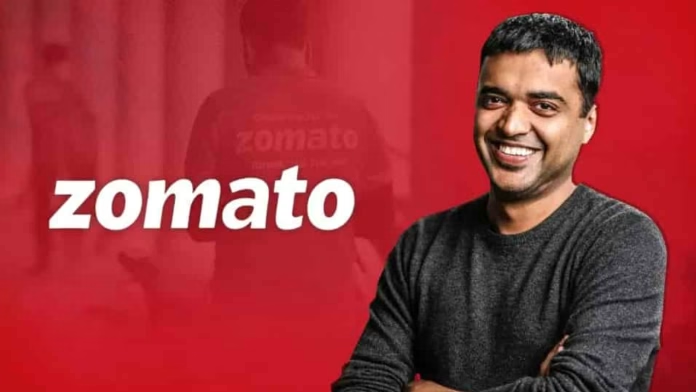Zomato’s recent transactions filings with the exchanges have unveiled that the company bore a cost of INR 143 crore in the second half of FY23 for the Employee Stock Ownership Plans (ESOPs) provided to Deepinder Goyal, the Co-Founder of Zomato.
Furthermore, Zomato extended ESOPs valued at INR 13.5 crore and INR 10 lakh to senior executives within the company, including Akshant Goyal, the Chief Financial Officer, and Sandhya Sethia, the Company Secretary. Additionally, the food technology major disclosed in a recent shareholder letter that its expenses for implementing ESOPs decreased to INR 510 crore in FY23, down from INR 880 crore in FY22.
In its recent quarterly report, Zomato announced a reduction in losses, with the figures for the March quarter standing at INR 188.20 crore, a decrease from INR 346.60 crore in the December quarter and INR 359.70 crore in the corresponding quarter of the previous year. Zomato further revealed that its business, excluding quick commerce, achieved a positive adjusted EBITDA during the March quarter.
The term “adjusted EBITDA positive” used by Zomato indicates that, in the March quarter, the company’s operating earnings, after excluding certain non-cash expenses and one-time charges, exceeded its operating expenses.
“I would rate our current confidence level (regarding group-level profitability) at 9/10….In food delivery, over the last five quarters, we have improved our margins meaningfully while further strengthening our market position. We will continue with the same mindset as we look to further expand the Adjusted EBITDA margin (from the current 1.2 percent) to our stated goal of +4-5 percent of Gross Order Value (GOV), which would translate to ~INR 1,000 to INR 1,300 crores of annual cash operating profit at the current scale of the food delivery business,” he wrote.
Additionally, Zomato’s revenue for the quarter experienced a substantial increase of 69.66 percent, amounting to INR 2,056 crore, in comparison to INR 1,211.80 crore generated in the corresponding quarter of the previous year.
Within the shareholder letter, Goyal expressed Zomato’s objective of attaining group-level profitability, encompassing the quick commerce division Blinkit, within a span of four quarters. The company aims to achieve this by augmenting profits in the food delivery segment and minimizing losses in Blinkit, thereby working towards its goal.





